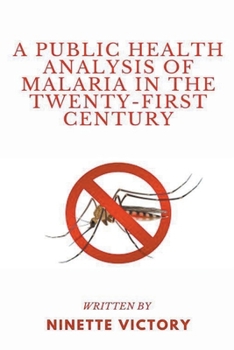A Public Health Analysis of Malaria in the Twenty-First Century
In "A Public Health Analysis of Malaria in the Twenty-First Century," renowned public health specialist Ninette Victory unravels one of the world's most complex health issues. Malaria is closely linked to socio-economic, environmental, and global health dynamics, and modern public health views analyze it.
Victory begins by examining malaria's history and its effects on human communities. She then takes readers through cutting-edge malaria detection, treatment, and preventive studies. The book explores the complex link between malaria parasites, vectors, and vulnerable populations.
Victory's overall strategy distinguishes it. The author explores malaria's societal causes beyond its biology. Malaria's economic effects, healthcare system effects, and devastating effects on vulnerable groups are examined in detail.
Each chapter examines a key malaria issue and provides a path for the future. Victory carefully investigates how new technologies, strategies, and global cooperation might change malaria control.
The author faces obstacles head-on. Victory presents a multifaceted perspective of malaria's challenges, from afflicted communities' economic difficulties to healthcare system strain. The book ends with convincing policy proposals to help policymakers, public health authorities, and stakeholders accomplish dramatic change.
This book offers a complete reference to understanding and treating malaria in the modern era. Victory's writing simplifies hard public health issues for a wide audience. "A Public Health Analysis of Malaria in the Twenty-First Century" inspires global health advocates to work toward a malaria-free society.





